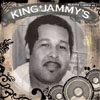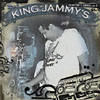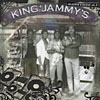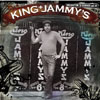 VP Records, the best known reggae label operating in the United States today, has gone above and beyond the call of duty with these four lovingly prepared double-disc collections of King Jammy's legendary 1980s dancehall productions. An extraordinary undertaking, this series branches off from and unequivocally surpasses last year's primer King At The Controls with an unhealthy level of meticulousness.
VP Records, the best known reggae label operating in the United States today, has gone above and beyond the call of duty with these four lovingly prepared double-disc collections of King Jammy's legendary 1980s dancehall productions. An extraordinary undertaking, this series branches off from and unequivocally surpasses last year's primer King At The Controls with an unhealthy level of meticulousness.
America's passing fancy for dancehall reggae has given the public only fleeting glimpses of its overall development, from the boombastic knockouts of Shabba Ranks or Chaka Demus and Pliers to more recent chart-climbers from Sean Paul and Beenie Man. Despite these and other noteworthy popular successes, the genre has thrived and evolved largely underneath the radar of the mainstream, playing independently by its own rules. While dancehall's origins trace back to the Jamaican deejays of the 1970s, one riddim in particular sparked the revolution, changing the face of the genre and reggae music forever: King Jammy's "Sleng Teng."
Although most famously versed by Wayne Smith on the classic "Under Mi Sleng Teng," Lloyd "King Jammy" James' earth-shattering prototypical digital riddim has been employed in studio recordings and live soundclashes by innumerable performers and remains an instantly recognizable dancehall classic with its simple, delightful, and often copied melody. Smith's essential take shares space here with official versions from Tenor Saw, Echo Minnott, Johnny Osbourne, Nicodemus, and John Wayne. While this is a decent and diverse grouping, the number of deejays who've had a go at the "Sleng Teng" riddim is immeasurable, making it downright impossible to put together an authoritative compilation.
 Still, King Jammy wasn't a mere one-hit wonder, as these 159 tracks demonstrate. This four volume series makes for a fantastic historical document of the genre that to this day defines Jamaican music, offering all sorts of clues as to where this emerging sound was headed. It's hard to say from my vantage point whether or not performers in this key period foresaw the longevity the sound would ultimately have, though Jammy's passionate and progressive productions act as a window into this breathtaking stage in 20th century music.
Still, King Jammy wasn't a mere one-hit wonder, as these 159 tracks demonstrate. This four volume series makes for a fantastic historical document of the genre that to this day defines Jamaican music, offering all sorts of clues as to where this emerging sound was headed. It's hard to say from my vantage point whether or not performers in this key period foresaw the longevity the sound would ultimately have, though Jammy's passionate and progressive productions act as a window into this breathtaking stage in 20th century music.
Mining such a sizeable pool of songs from dozens of artists poses a challenge for even the most active listener. Still, even with a splendid, ambitious collection such as this, highlights do emerge. Of particular note is the pairing of Echo Minnott's "What The Hell" and "Tell You What Police Can Do," the female response from Lady Junie, both recorded over the same riddim. Minnott's memorable take practically justifies his abusive relationship, taunting the lover in his story while apologizing for their domestic violence, while Junie's sharp tongue counters with feminist fury, detailing the type of beating her own lover could expect from the authorities for his actions. Peter Metro uses his forum to decry racist profiling and nationalist sentiment on the unforgettable "Police Inna England." On "Let Jah Arise," King Kong infuses some strict Rastafarian morality into the genre, warning sinners who deviate from the righteous path, a torch picked up by more current artists like Capleton. Those who loved last year's White Mice reissues on Basic Replay will enjoy the youthful voice of Risto Benji on the two ruff cuts he graces, "Don't Pirate It"and "Gimme Di Money." Somewhat disappointing on this front is the inexplicable exclusion of the aforementioned Beenie Man, another young emcee that came up through the Jammy's ranks and even recorded his now out-of-print debut album with the imprint.
 Several of these tracks, most common on the final volume, foreshadow the prevalence of sexual lyrics in dancehall, a significant deviation from the tamer romance of lovers' rock and Jah praise of roots reggae. The genre's early embracing of (hetero-)sexuality sets it miles ahead of the majority of "shocking" lyrics from today's opportunistic Western pop stars and showboating rappers. Compare the allegedly racy singles from major label artists deemed worthy of MTV airplay to some of the raw verses spat and you'll have a hard time disagreeing with my assessment. Take, for one, Jammy's infamous "Punnany" riddim, made even more wicked thanks to the explicit patois of Admiral Bailey's version. To this day, that word serves as an accessible point of reference for dancehall music and, to countless outsiders, Jamaican culture. Shabba Ranks invokes the term repeatedly on the simplistic hook of the raunchy yet catchy "Love Punnany Bad" and to a lesser extent on the even more deliciously vulgar "Needle Eye Pum Pum," a track in praise of gloriously tight pussy.
Several of these tracks, most common on the final volume, foreshadow the prevalence of sexual lyrics in dancehall, a significant deviation from the tamer romance of lovers' rock and Jah praise of roots reggae. The genre's early embracing of (hetero-)sexuality sets it miles ahead of the majority of "shocking" lyrics from today's opportunistic Western pop stars and showboating rappers. Compare the allegedly racy singles from major label artists deemed worthy of MTV airplay to some of the raw verses spat and you'll have a hard time disagreeing with my assessment. Take, for one, Jammy's infamous "Punnany" riddim, made even more wicked thanks to the explicit patois of Admiral Bailey's version. To this day, that word serves as an accessible point of reference for dancehall music and, to countless outsiders, Jamaican culture. Shabba Ranks invokes the term repeatedly on the simplistic hook of the raunchy yet catchy "Love Punnany Bad" and to a lesser extent on the even more deliciously vulgar "Needle Eye Pum Pum," a track in praise of gloriously tight pussy.
Another common thread on display here is dancehall’s informal approach to covering other people’s songs. King Everald's "Dancehall Business" loosely interprets Irving Berlin’s perennial showtune "There's No Business Like Show Business" while Leroy Gibbons' "Magic Moment" stays largely true to The Drifters' original. Coincidentally, Cocoa Tea's "Medley 5" liberally samples from another Drifters classic "Under The Boardwalk." This technique of taking recognizable songs and converting them into new ragga platters continues today.
 King Jammy's impact on reggae is akin to such hailed producers as Phil Spector or Martin Hannett, if not moreso. A lesser label (several come to mind) would have been content, taking into account licensing considerations, to release any one of these eight discs and audaciously call it "definitive." VP Records' efforts honor the man and his legacy, and I sincerely hope that the label's high profile gives this impressive undertaking the type of attention that could never have been achieved with the independently released Revenge of King Jammy's Super Power All Stars discs. At present, all four excellent volumes are available as individual double-disc releases, which may frustrate cash-strapped consumers but though undoubtedly thrill completists.
King Jammy's impact on reggae is akin to such hailed producers as Phil Spector or Martin Hannett, if not moreso. A lesser label (several come to mind) would have been content, taking into account licensing considerations, to release any one of these eight discs and audaciously call it "definitive." VP Records' efforts honor the man and his legacy, and I sincerely hope that the label's high profile gives this impressive undertaking the type of attention that could never have been achieved with the independently released Revenge of King Jammy's Super Power All Stars discs. At present, all four excellent volumes are available as individual double-disc releases, which may frustrate cash-strapped consumers but though undoubtedly thrill completists.
samples:
- Wayne Smith - Under Mi Sleng Teng
- Peter Metro - Police Inna England
- King Kong - Let Jah Arise
- Echo Minnott - What The Hell
- Leroy Gibbons - Magic Moment
- Shabba Ranks - Needle Eye Pum Pum
- Admiral Bailey - Punnany
- Risto Benji - Gimme Di Money
Read More

